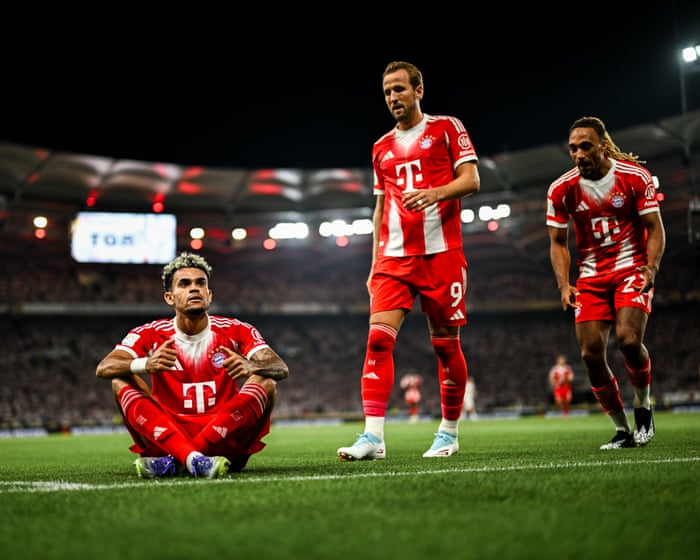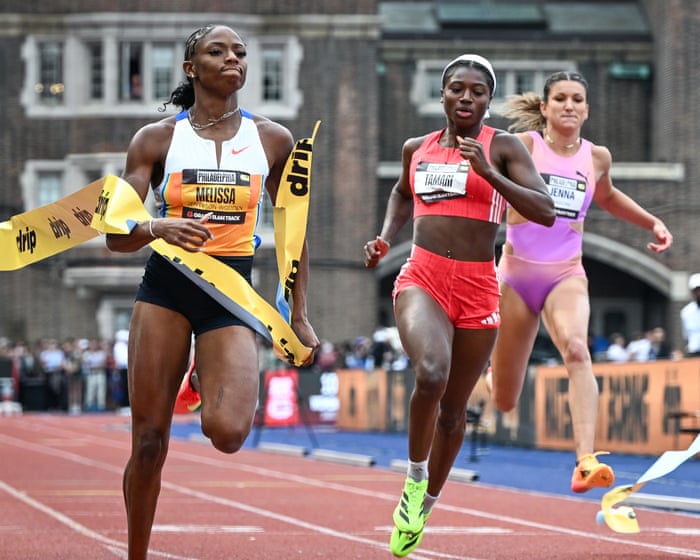The newly named Franz Beckenbauer Supercup has a lot to offer. Unlike some other European season openers, this match between the league and cup winners usually brings plenty of intensity. It’s played in a charged atmosphere too, hosted at one of the two teams’ home grounds rather than a neutral venue, so the passion is immediate.
But the Supercup isn’t always a reliable preview of the Bundesliga season ahead. Last year, Bayer Leverkusen gave a strong hint of their double-winning form by beating Stuttgart with a late Patrik Schick goal and winning on penalties, despite playing much of the match with 10 men. The year before, Harry Kane had a forgettable Bayern Munich debut after “a crazy 24 hours,” entering to huge applause only to watch his new team get dismantled by Dani Olmo’s hat-trick for Leipzig. Pep Guardiola, for his part, never won the Supercup during his three years at Bayern.
Maybe this time, with a new name, things will be different. We can’t say for sure, but the first edition named after Der Kaiser felt familiar, maybe even inevitable. When the announcer at the MHP Arena signaled four minutes of added time, many Stuttgart fans booed, as if to say, “Can’t this just end?” Jamie Leweling did pull one back to make it 2-1, but the scoreline flattered the home side. Overall, the match showed that even without Jamal Musiala, Bayern remain a formidable—and seemingly inevitable—force.
Kane, who opened Bayern’s domestic scoring with a clinical finish, raised eyebrows in the German media by saying Vincent Kompany’s squad is “one of the smallest I’ve played in.” Coming from Tottenham to Bayern, that’s surprising. “We’re a little light, if we’re being honest,” he admitted.
That might be true in Kane’s part of the pitch, with Leroy Sané, Kingsley Coman, and Thomas Müller leaving and only Luis Díaz arriving so far. But the Colombian made an instant impact in the Supercup, scoring the kind of winning goal past Bayern wingers might not have managed—a diving header from a Serge Gnabry cross. Díaz looks like a premium addition, potentially becoming Bayern’s most dynamic wide player since Franck Ribéry, with more goals in his locker.
There’s likely more business to come before the transfer deadline, with a long season ahead. Bayern are interested in Nick Woltemade; the Stuttgart striker’s future was a talking point during the Supercup, much like his imposing presence on the pitch. Bayern have made their interest in the German under-21 star clear, and the feeling is mutual—Woltemade has reportedly told other suitors, including Napoli and Real Madrid, that he only wants Munich. But with Bayern hesitating at Stuttgart’s €70m asking price for a player who joined on a free from Werder Bremen last summer, it’s no wonder Stuttgart’s CEO Alexander Wehrle said “the matter is closed” on Saturday. We’ll see.
Perhaps the best news for Bayern is that their closest rivals from the past two seasons are going through even bigger changes. Leverkusen are now without Xabi Alonso, and his replacement Erik ten Hag has seen Florian Wirtz, Jeremie Frimpong, and Jonathan Tah all depart, along with the experience of Granit Xhaka and captain Lukas Hradecky. Some worry about Leverkusen’s future without Xhaka, though it’s fair to ask if he made as much sense without Alonso, who always described the midfielder as his on-field representative.
Despite his struggles at Manchester United, Ten Hag is highly respected in Germany, and Leverkusen have never…Despite their remarkable achievements in 2024, it’s easy to forget what RB Leipzig stands for—a club operating on roughly half of Borussia Dortmund’s budget, yet striving to become a consistent Champions League presence. Having already earned €210 million in transfers this window, they will rely on younger talents, with teenagers Ibrahim Maza and Axel Tape impressing in pre-season. A few major signings are expected to bolster the squad, likely headlined by Sevilla’s polished French defender Loïc Badé.
RB Leipzig finds itself in a somewhat similar situation, though for different reasons. After failing to qualify for European competition last season—a first since their promotion in 2016—the club is under new management with coach Ole Werner, who excelled at Bremen, and young sporting director Marcel Schäfer. Red Bull’s global head of sport, Jürgen Klopp, even made a visible appearance during an early training session to reassure everyone that the club remains on track. With Benjamin Sesko likely followed to the Premier League by Xavi Simons, Leipzig will return to its Red Bull roots of youth and energy. New signings Yan Diomandé, Johan Bakayoko, and Rômulo will supplement young talents like 20-year-olds Antonio Nusa and El Chadaille Bitshiabu.
As for Dortmund, Niko Kovac performed wonders by steering them into the top four late last season, but there has been little opportunity to build on that success. Factors like participation in the Club World Cup shortening their break, paying off the final year of Sébastien Haller’s expensive contract, and an estimated €10 million renovation of the club’s corporate kitchens have tightened the budget. The arrival of Jobe Bellingham reinforces Dortmund’s reputation as an elite finishing school, but Kovac may need to ease his famously intense training regimen to avoid burnout from the Club World Cup.
Eintracht Frankfurt might be the Bundesliga’s most under-the-radar dark horse. After cashing in on Hugo Ekitiké, their status as shrewd traders under sporting director Markus Krösche is no secret. Yet, they are already steps ahead, having signed German striker Jonathan Burkhardt as a more-than-capable replacement. Frankfurt enters the Champions League far better equipped than two years ago, with a solid defense and attacking options.
The two promoted teams, FC Köln and Hamburg—returning after a seven-year absence—add significant appeal to the Bundesliga, introducing two major derbies: Köln vs. Borussia Mönchengladbach and Hamburg vs. St. Pauli, both must-watch fixtures. The Hamburg derby at Volksparkstadion in the second week should kick the season off with a bang.
The early weeks will be crucial. The league is waiting for a genuine contender to challenge Bayern Munich right from the start. Meanwhile, the fact that Florian Wirtz is no longer in the Bundesliga—suggesting Bayern’s allure may not be as unmatched as before—could offer hope that Vincent Kompany’s team won’t simply cruise to the title.
Frequently Asked Questions
Of course Here is a list of FAQs about the topic designed to be helpful for fans of all knowledge levels
General Beginner Questions
Q What does it mean that Bayerns rivals face a tougher challenge
A It means that while Bayern Munich has a hard time staying at the top the other teams have an even harder task trying to catch up and dethrone a club with far greater financial power squad depth and a winning mentality
Q Hasnt Bayern lost the title recently Doesnt that prove its easy for others
A Bayer Leverkusens incredible 202324 title win proved its possible but it also proved how difficult it is It required a nearly perfect unbeaten season from another team to finally break Bayerns 11year streak showing just how high the bar is set
Q Why is it so hard to compete with Bayern Munich
A Primarily due to three factors 1 Financial Power They have a much larger budget for transfers and wages 2 Squad Depth They can field two worldclass teams handling injuries better than rivals 3 Winning Mentality Players are accustomed to the pressure of winning every game
Advanced Strategic Questions
Q Beyond money what specific advantages does Bayern have over its rivals
A Key advantages include their global brand appeal which attracts top talent the ability to poach the best players from direct rivals and the immense pressure and scrutiny that comes with challenging them which can cause other teams to crack
Q What is the vicious cycle that makes it tough for Bayerns rivals
A The cycle looks like this A rival team has a great season and qualifies for the Champions League The intense schedule causes fatigue and injuries They lack the deep squad to compete on all fronts Their league form suffers Their best players get bought by bigger clubs The team is weakened for the next season
Q How does the 501 rule play into this dynamic



